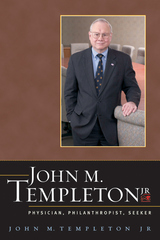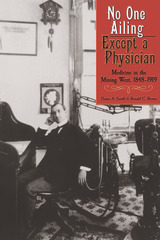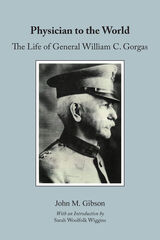
In Greek, iatro- means doctor, and -genesis means origin: Iatrogenesis thus describes any effect, good or bad, brought forth by a physician’s actions. This essay compendium looks beyond a physician’s impact on patients, instead turning inward to examine the impact of medical training on student doctors. These essays written by University of Michigan medical students span from the donning of the White Coat to graduation. Along the way, each writer weaves a story, the threads of which unite in a tapestry highlighting the universality of this coming-of-age journey. These essays breathe life into each stage of medical apprenticeship, displaying the full spectrum of human emotion as medical students find ways to reinvent themselves as the physicians of tomorrow.

Candidly, with a mixture of joy, poignancy, and gratitude, the chairman and president of the John Templeton Foundation reflects on the learning and growing he has experienced and the perspectives he has gained throughout his life. In so doing, he continues the legacy of his father, Sir John Templeton, who has used stories from his life to provide instruction for his children, grandchildren, and other future descendants, just as he has drawn on those stories in his many books of inspiration and guidance for the general public.
Dr. Templeton shares stories about his personal life, his career in medicine, his early involvement with philanthropy, and his commitment to the John Templeton Foundation and its mission. Events and circumstances in his youth opened him to spirituality, taught him about altruistic love, and introduced him to values he would cultivate throughout his life: thrift, saving, hard work, creativity, and responsibility.
His journey takes him from his early life in Winchester, Tennessee, to New Jersey, Yale University, medical school, the Navy, the Children's Hospital of Philadelphia, and the John Templeton Foundation. Along the way, there were lessons learned from his disruptive behavior in elementary school; the deaths of his grandmother and mother; travel to Europe, Africa, and throughout the U.S.; marriage and fatherhood; his growing commitment as a Christian; and his family's experience with an armed robbery. It continues with his experiences in pediatric surgery at the Children's Hospital of Philadelphia, including work with conjoined twins; experience with the mutual fund industry and a role with the Templeton Growth Fund; an intensely rewarding medical specialty in trauma; philanthropy and fund-raising efforts, including a sad experience with fraud; the pride of professorship; and serving as chairman and president of the John Templeton Foundation.
With gratitude he credits his many mentors for the wisdom they passed on to him. Among them are John Galbraith, Dr. C. Everett Koop, Dr. Albert Schweitzer, and, of course, always and above all, his father. With appreciation, he recounts the blessings of a full and productive life that continue today as he provides leadership to the diverse programs and initiatives of the John Templeton Foundation.

From burying scurvy victims up to their necks in the earth to drinking kerosene mixed with sugar to treat influenza, mid-nineteenth century medicine in the mining communities of the West usually consisted of home remedies that were often remarkable for their inventiveness but tragically random in their effectiveness. Only as a desperate last resort would people turn to the medical community, which had developed a deplorable reputation for quackery and charlatanism because of its lack of licensing regulations and uniform educational standards. No One Ailing Except a Physician takes readers back to those free-wheeling days in the mining towns and the dark recesses of the mines themselves, a time when illness or injury was usually survived more due to sheer luck than the interventions of medicine.
In this important new contribution to both mining and medical history, historians Duane A. Smith and Ronald C. Brown present a detailed analysis of the ailments that confronted the miners and the methods with which they and their doctors attempted to "cure" them. The occupational hazards of mining, with its strenuous labor and exposure to the elements, contributed to the miners' vulnerability to disease and injury, which was further worsened by the typical miner's refusal to heed prevailing medical wisdom and common sense, often leading to easily preventable diseases such as scurvy. And because medical science of the era had not progressed much beyond that of the ancient Greeks, such debilitating diseases such as cholera, influenza, dysentery, and malaria proved to be virtual death sentences, to say nothing of occupational accidents with fires and explosions, mine collapses, and safety cage mishaps.

Physician to the World by John M. Gibson is a study of the career of William Crawford Gorgas, focusing primarily on the 22 years from the Spanish-American War until his death at the age of 65. The book details the medical community’s gradual acceptance of the mosquito theory as the cause for yellow fever epidemics and follows Gorgas as his initial skepticism gave way to belief while he participated in Walter Reed’s massive cleanup of Havana. From this success Gorgas moved to the Panama Canal Zone and a bureaucratic quagmire as he attempted to apply sanitary principles there to control yellow fever and malaria. As canal construction proceeded, assorted red-tape and critics repeatedly thwarted Gorgas’s efforts. His particular nemesis was the imperious engineer George Goethals, who ruled the construction project with an iron hand. Gorgas’s dogged persistence to make Panama healthy for both Americans and natives eventually succeeded, enabling the project to be completed with minimum loss of life. During World War I Gorgas became U.S. Surgeon General, and finally his reputation equaled his accomplishments. He traveled widely in Europe, South Africa, and South America on behalf of public health improvements and was about to begin another such journey when he died of complications from a stroke in London in 1920.
READERS
Browse our collection.
PUBLISHERS
See BiblioVault's publisher services.
STUDENT SERVICES
Files for college accessibility offices.
UChicago Accessibility Resources
home | accessibility | search | about | contact us
BiblioVault ® 2001 - 2024
The University of Chicago Press









